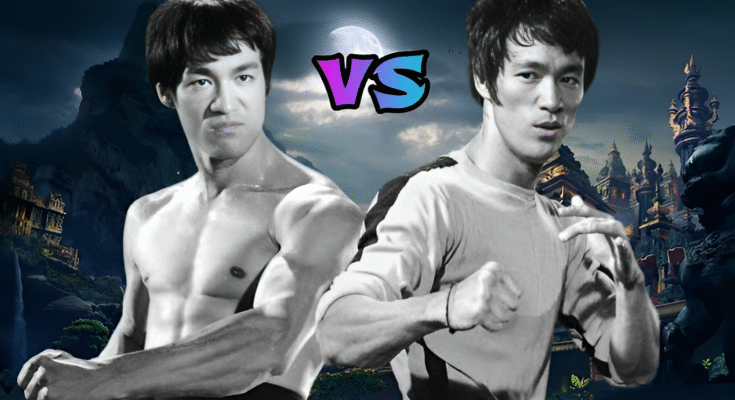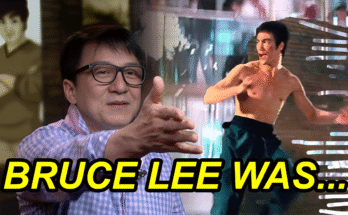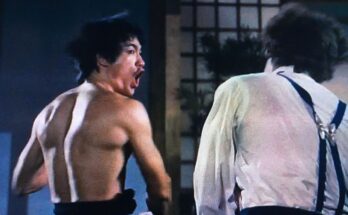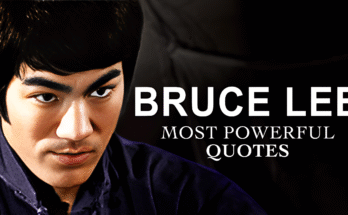What happens when an unstoppable force meets… itself? In a fantasy match-up only possible through the imagination of fans and modern cinematic analysis, the conversation has reignited: who would win in the ultimate showdown between Bruce Lee’s two most iconic personas—Chen Zhen from Fist of Fury (1972) versus the stoic yellow-jumpsuited fighter from Game of Death (1978)?

The idea may sound like fan fiction, but film enthusiasts and martial arts analysts are treating the hypothetical duel with serious depth, using Lee’s evolving philosophy, physical form, and fighting style across both films to paint a picture of a battle for the ages.
The Fighters
Bruce Lee as Chen Zhen (Fist of Fury)
In Fist of Fury, Lee plays Chen Zhen, a disciple burning with vengeance after the death of his master. His fighting style is raw, emotional, and explosive. He charges into rooms with fury, often overwhelming his opponents with sheer aggression and relentless flurries of punches and kicks. There’s a righteous fire in his movements—a sense of purpose driven by loss and honor.
“Chen Zhen was Bruce at his most intense,” says martial arts commentator Henry Kwan. “His movements had fury, precision, but also emotion—he wasn’t just fighting enemies, he was fighting for his people.”
Bruce Lee as Himself (Game of Death)
In Game of Death, which was tragically completed posthumously using stand-ins for several scenes, Bruce plays a version of himself—a martial arts master ascending through levels of a pagoda, each with a unique style and philosophy to overcome. His fighting style here is calm, calculated, and efficient. It’s not about rage—it’s about mastery.
“Game of Death Bruce is cerebral,” notes filmmaker Jason Han. “He’s not wasting energy. He adapts on the fly, reads his opponent, and responds with strategy. This is Bruce Lee the philosopher in motion.”
Style vs. Strategy
If this fictional battle were to take place, it would be the classic martial arts contrast: emotion vs. evolution.
-
Chen Zhen is pure firepower—a whirlwind of spinning kicks, charging strikes, and righteous vengeance.
-
Game of Death Bruce is all about economy of motion—sidesteps, counter-attacks, and fluid transitions from one style to another, embodying the very principle of Jeet Kune Do.
“In many ways,” says film historian Alicia Romero, “this isn’t a question of who would win, but who Bruce became. Fist of Fury showed who he was. Game of Death revealed who he evolved into.”
The Verdict?
The debate rages on across social media and fan forums. Many side with Chen Zhen’s raw intensity, claiming no opponent—fictional or real—could withstand that rage. Others argue that the Bruce of Game of Death had transcended brute force and would simply out-think, outlast, and outmaneuver any version of his younger self.
Legacy Beyond the Match
Regardless of the winner, both portrayals mark milestones in Bruce Lee’s legendary film career. Fist of Fury established him as a cultural icon who stood against oppression and injustice. Game of Death, though incomplete, showcased his vision of martial arts as personal expression—free of form, full of thought.
Ultimately, the real triumph is Bruce Lee’s influence across generations. Whether it’s Chen Zhen’s vengeance or the pagoda warrior’s enlightenment, both characters are reflections of a man who forever changed cinema, philosophy, and martial arts.



